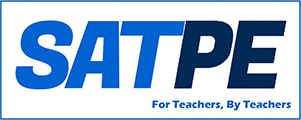Goal Types
Goals can be set for either a prolonged period of time (long-term goals) or a shorter duration (short-term goals). It is important however that you apply the SMART acronym to your goals in order for them to be considered as effective.
Long-term goals are usually static in nature and represent an aim you wish to achieve by the end of your development plan. It is important that you apply the letters S(pecific), (R)ealistic* and T(ime-bound) to such goals. Look at the examples below.
Key:
Specific
Time bound
Mental: ‘By the end of my 6 week development plan, I want to improve my concentration so I can focus clearly on the man I am marking in basketball so I can stay tighter to them and intercept passes towards them.’
Emotional: ‘By the end of my 6 week development plan, I want to control my anger when the referee makes a decision I disagree with in football so I can walk away without arguing and avoid a yellow card for dissent.’
Social: ‘By the end of my 6 week development plan, I want to become more of a team player and support my teammates rather than criticise them when they make mistakes.’
Physical: ‘By the end of my 6 week development plan, I want to improve my strength in rugby so I can exert a greater force than my opponents in scrums and help gain yards for my team.’
Short-term goals should act as stepping stones towards achieving your overall aim and nudge you further along the pathway in pursuit of your long-term target. Short-term goals are much more dynamic in nature and owe a great deal to effective monitoring of performance and feelings. Ensure that you apply the letters (S)pecific, (M)easurable, (A)djustable*, (R)ealistic* and (T)ime bound to these goals. Take a look at the examples below.
Key:
Specific
Measurable
Time bound
Mental: ‘By the end of today’s visualisation session, I want to clearly imagine myself staying tight to my man in 3 different defensive situations.’
Emotional: ‘By the end of today’s deep breathing session, I want to let go of my anger at the referee within 5 deep breaths.’
Social: ‘By the end of today’s team building games session, I want to have given my teammates at least 3 points of positive feedback and encouragement.’
Physical: ‘By the end of today’s weights training session, I want to have squatted at least 3 reps at 90% of my 1 rep max.’
*Adjustable occurs as sessions go on and therefore your goals may change during a session.
*Realistic is dependent on the individual and should be challenging but not overstretching.

LEARNING CHECKLIST
Can you now answer:
3) Describe 1 long-term and 1 short-term goal for each factor.
